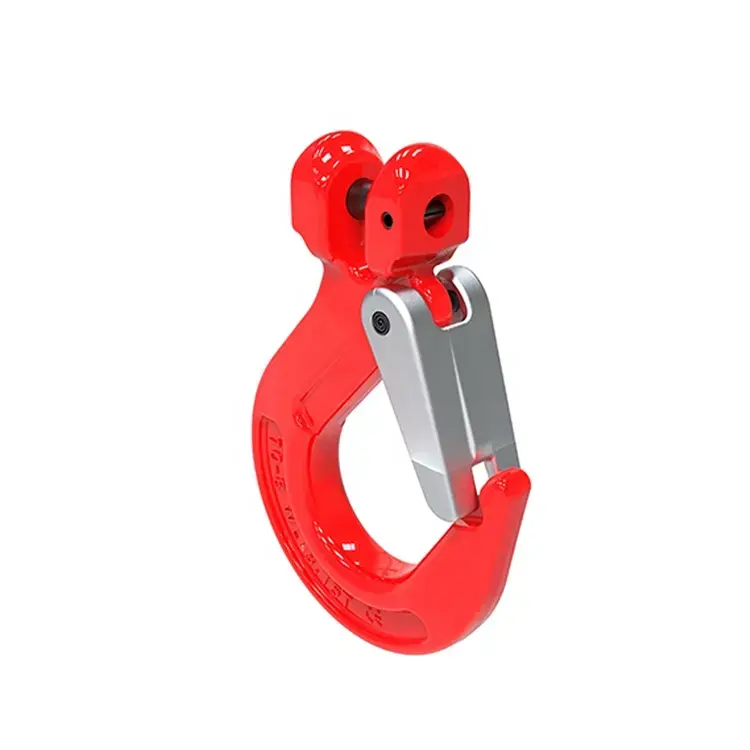News
Лис . 27, 2024 20:52 Back to list
US Anchor Shackle Products for Reliable Marine and Industrial Applications
Understanding US Anchor Shackle Products Essential Components in Rigging and Lifting
When it comes to rigging and lifting applications, one essential component that stands out is the anchor shackle. Among various hardware used in these industries, US anchor shackle products form the backbone of safe operation—providing reliability and strength vital to heavy lifting operations, marine applications, and construction projects. This article delves into what anchor shackles are, the different types available, their materials, and applications, as well as best practices for their use and maintenance.
What is an Anchor Shackle?
An anchor shackle is a U-shaped device with a pin or a bolt that is used to connect two components of a lifting system. Typically made of high-strength steel, these shackles serve as connectors for components such as slings, ropes, and chains. Their design allows for quick attachment or detachment, making them versatile and user-friendly.
Types of Anchor Shackles
Anchor shackles can be broadly classified into three main types
1. Bow Shackles Bow shackles are characterized by their rounded, wide body and are ideal for connecting multiple components. The design allows for load to be applied from multiple angles, increasing versatility in applications.
2. D-Shackles Also known as chain shackles, D-shackles have a more compact design compared to bow shackles. They are typically used in situations where loads are more linear and direct, making them suitable for various lifting applications with less need for lateral movement.
3. Safety Shackles These shackles come equipped with an additional locking mechanism to prevent accidental opening. Safety shackles are especially crucial in heavy-duty applications where the risk of slippage is a concern.
Materials Used in Anchor Shackles
The material of an anchor shackle is paramount to its performance and durability. The most common materials used include
- Carbon Steel Most shackles are made from carbon steel because it offers a high strength-to-weight ratio. They are typically galvanized or coated to prevent corrosion, making them suitable for outdoor and marine use.
- Stainless Steel For applications where rust and corrosion are significant concerns, stainless steel shackles are preferable. They offer durability and resistance to elements, making them suitable for marine environments.
- Alloy Steel These shackles are made from higher tensile strength materials and are typically used in applications demanding exceptional strength, such as lifting heavy machinery.
us anchor shackle products

Applications of Anchor Shackles
US anchor shackle products are utilized across various industries
- Construction In the construction sector, shackles are used to lift and move heavy materials and equipment, ensuring safety and efficiency
.- Marine In boating and maritime operations, anchor shackles are essential for securing lines, ropes, and chains, playing a vital role in anchoring vessels.
- Rigging In rigging applications, shackles help connect hoists, blocks, and other lifting gear, ensuring that loads are managed securely.
- Transportation In logistics and freight, shackles ensure that loads are properly secured during transit, preventing accidents on the road.
Best Practices for Use and Maintenance
To ensure longevity and safety, it’s crucial to follow best practices when using anchor shackles
1. Load Rating Always ensure that the shackle being used can support the intended load. Check the load rating stamped on the shackle before use.
2. Inspection Regularly inspect shackles for any signs of wear, deformation, or corrosion. Replace any shackles that are damaged or compromised.
3. Proper Use Avoid side-loading or twisting shackles as this can weaken their structural integrity. Always use shackles in accordance with the manufacturer's specifications.
4. Storage Store shackles in a dry, clean environment to prevent corrosion. Keep them organized to avoid damage during transportation or storage.
Conclusion
US anchor shackle products are vital to lifting and rigging applications, ensuring that operations are conducted safely and efficiently. Understanding the types, materials, and best practices related to anchor shackles helps users make informed decisions, enhancing both safety and performance in various industrial fields. Whether in construction, marine, or transportation, using reliable anchor shackles is critical to achieving operational success.
